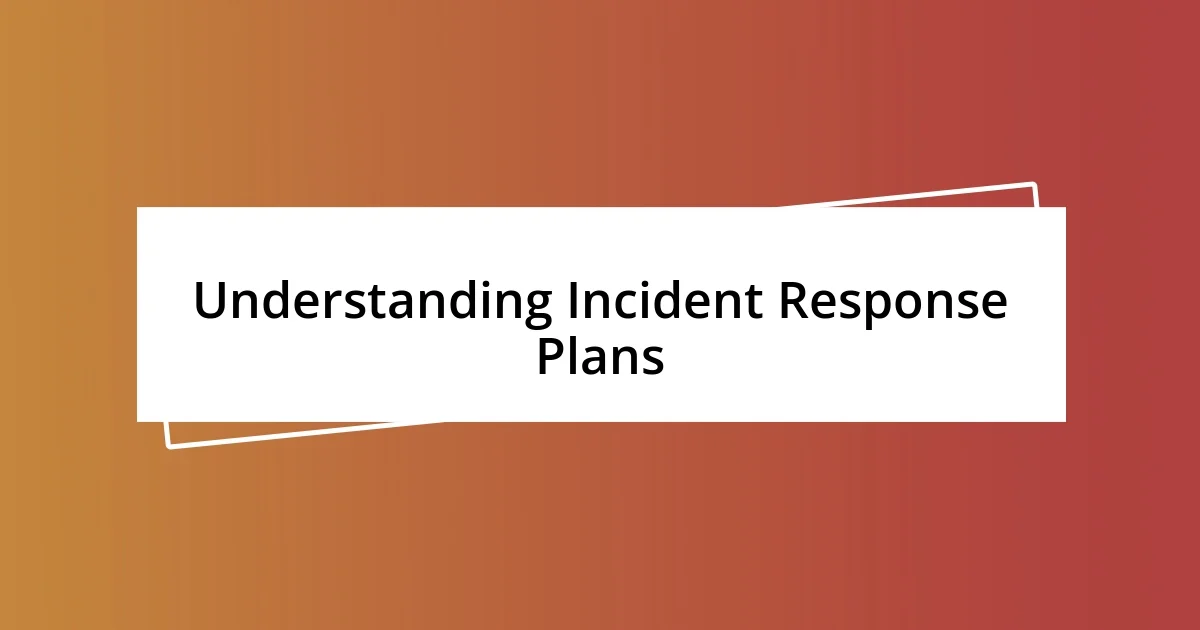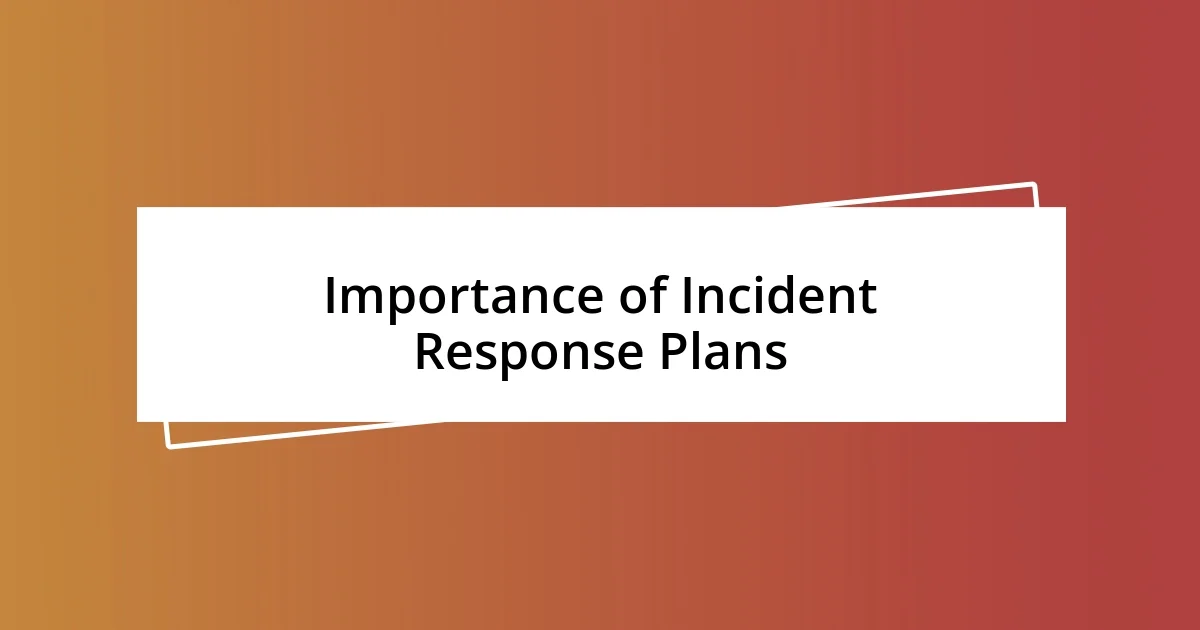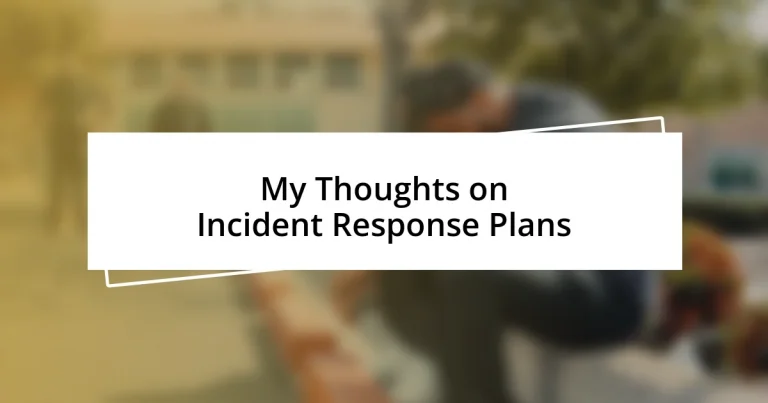Key takeaways:
- An incident response plan is essential for effectively managing security crises and minimizing stress during unexpected events.
- Having a tailored and collaborative incident response plan can protect an organization’s reputation and significantly reduce the impact of cyber incidents.
- Involving operational staff in planning enhances the effectiveness of the response, ensuring everyone understands their roles during a security incident.

Understanding Incident Response Plans
When I first dove into the world of incident response plans, I was struck by how crucial they are for managing unforeseen crises. It’s like having a well-organized toolbox—when something breaks, you can find exactly what you need instead of scrambling around. Have you ever faced a sudden issue where a lack of preparation made everything worse? It’s a stark reminder of the importance of being ready.
An incident response plan outlines the procedures to follow during different types of security incidents. For instance, I once witnessed a minor security breach escalate into a chaotic scenario simply because the team didn’t have a clear plan. It was a learning moment for everyone involved; the anxiety in the room was palpable as we struggled to figure out the next steps. Having a structured approach could have mitigated that stress significantly.
Moreover, an effective incident response plan is not a one-size-fits-all solution; it evolves with your organization. I recall drafting and revising ours over several months, consulting with various departments to ensure everyone’s unique concerns were addressed. This collaborative approach not only sharpened the plan but also fostered a sense of ownership among team members. How can your organization thrive if everyone feels responsible for your collective security? The answer lies in continuous improvement and communication.

Importance of Incident Response Plans
It’s incredible to think about how an incident response plan can not only minimize damage but also save your organization’s reputation. I remember when a colleague’s company faced a cyberattack that came out of nowhere, yet they managed to handle it gracefully because they had a solid plan in place. Their ability to quickly communicate with stakeholders and customers reflected the strength of their preparation—something that is absolutely vital in today’s fast-paced digital world.
During one workshop I attended, a security expert shared a chilling statistic: nearly 60% of small businesses go out of business within six months of a cyber incident. This stat really hit home for me. I’ve seen firsthand how even a small lapse in preparedness can lead to significant losses. If we understand the potential impact of incidents, isn’t it worth investing the time and resources into a robust plan?
Every organization has a unique environment, and this means the importance of tailoring incident response plans cannot be overstated. In my experience, involving operational staff in the planning process brings invaluable insights, as they have a different perspective on potential vulnerabilities. I often ask myself, how well does your team understand their role after an incident strikes? The clearer and more practiced their responses are, the easier it will be to navigate any storm ahead.














